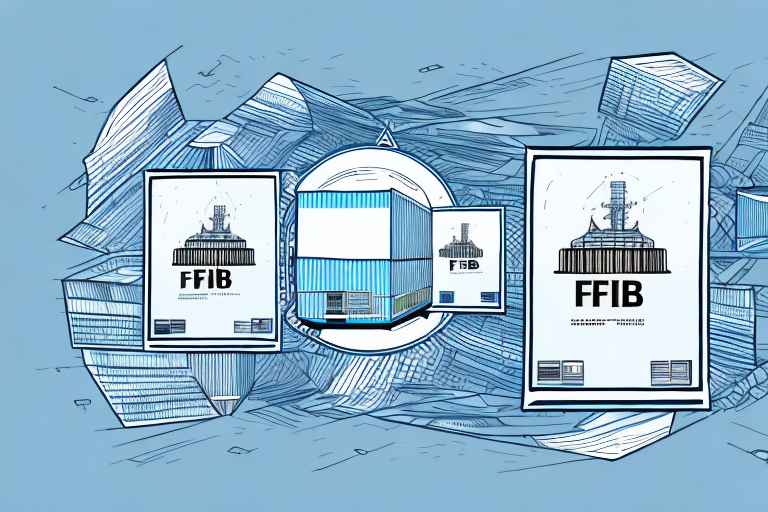Understanding the Benefits of B2B (Business-to-Business) Transactions
In today’s fast-paced and dynamic business landscape, many companies are finding it increasingly necessary to engage in B2B (business-to-business) transactions. B2B transactions involve the sale of goods or services between two or more businesses, rather than between a business and a consumer. According to a Statista report, the global B2B e-commerce market is projected to reach over $25 trillion by 2028. There are several benefits of B2B transactions for both buyers and sellers, and this article explores them in detail. Whether you’re a business owner looking to improve your B2B strategy or an entrepreneur interested in the world of commerce, read on to learn everything you need to know about B2B transactions.
The Advantages of B2B Transactions for Buyers and Sellers
One of the most significant benefits of B2B transactions is that they provide both buyers and sellers with a range of advantages:
- Access to High-Quality Products or Services: B2B transactions offer buyers access to specialized products or services tailored to their business needs.
- Market Expansion: Sellers gain access to new and potentially lucrative markets, facilitating business growth.
- Negotiation Power: Larger order volumes and long-term contracts enable both parties to negotiate more favorable terms and prices.
- Strong Business Relationships: Regular collaborations foster deeper understanding and more efficient transactions in the future.
Furthermore, B2B transactions often involve more complex and substantial deals compared to B2C (business-to-consumer) transactions, allowing for greater scalability and long-term partnerships.
How B2B Transactions Drive Business Growth
B2B transactions are pivotal in driving business growth through several avenues:
- Customer Base Expansion: Engaging in B2B transactions allows businesses to tap into new customer segments.
- Revenue Streams: Multiple B2B partnerships can diversify and increase revenue streams.
- Access to New Markets: Partnerships can open doors to international markets and new distribution channels.
- Innovation and Product Development: Collaborations often lead to the sharing of ideas and resources, fostering innovation.
- Cost Savings: Shared resources and bulk purchasing can significantly reduce operational costs.
According to a McKinsey report, businesses that effectively leverage B2B transactions can see a 20-30% increase in profitability over five years.
The Role of Trust in Successful B2B Transactions
Trust is a cornerstone of any successful business transaction, especially in B2B dealings where long-term relationships and significant financial investments are common. Building trust involves:
- Consistent Communication: Regular updates and transparent dialogue help in aligning expectations.
- Clear Expectations: Establishing detailed agreements on scope, timelines, and payment terms prevents misunderstandings.
- Reliability: Consistently fulfilling obligations builds credibility and reliability.
For example, implementing Service Level Agreements (SLAs) can formalize expectations and provide a framework for accountability.
The Importance of Efficient Supply Chain Management in B2B Transactions
Efficient supply chain management is critical in B2B transactions, ensuring that goods and services are delivered accurately and timely. Key benefits include:
- Reduced Operational Costs: Streamlined processes eliminate redundancies and lower expenses.
- Improved Delivery Times: Efficient logistics ensure timely arrivals, enhancing customer satisfaction.
- Enhanced Customer Experience: Reliable supply chains build trust and repeat business.
According to the Supply Chain Digital, companies with optimized supply chains can reduce costs by up to 15%.
Key strategies for efficient supply chain management include:
- Implementing real-time inventory tracking systems.
- Building strong relationships with suppliers.
- Utilizing data analytics to forecast demand.
How Technology is Revolutionizing B2B Transactions
Advances in technology have significantly transformed B2B transactions, making them more streamlined and efficient. Notable technological innovations include:
- E-commerce Platforms: Facilitate online transactions, making it easier for businesses to connect globally.
- Data Analytics: Enable businesses to make informed decisions based on market trends and customer behavior.
- Automation: Reduces manual tasks, increasing efficiency and reducing errors.
- Artificial Intelligence (AI): Enhances personalization and predictive capabilities in transactions.
- Blockchain Technology: Provides secure and transparent transaction records, reducing fraud risks.
For instance, blockchain technology offers a secure and transparent way to conduct transactions, eliminating intermediaries and reducing the risk of fraud. According to a Forbes article, blockchain can simplify cross-border transactions and significantly decrease associated costs.
Key Considerations for Choosing the Right B2B Partner
Selecting the right B2B partner is crucial for the success of any transaction. Essential factors to consider include:
- Reputation: Assess the partner’s market standing and reliability.
- Financial Stability: Ensure the partner has the financial capacity to sustain the partnership.
- Compatibility: Align on business values, goals, and operational practices.
- Customer Service: A partner with excellent customer support can effectively address issues.
- Industry Expertise: Partners with deep industry knowledge can offer valuable insights and collaboration opportunities.
- Long-Term Potential: Consider the partner’s ability to grow and evolve alongside your business.
Utilizing tools like CRM software can help in evaluating potential partners by providing insights into their performance and compatibility.
How to Create Long-Term Relationships in B2B Transactions
Establishing long-term relationships in B2B transactions involves cultivating trust, effective communication, and shared values. Strategies include:
- Regular Engagement: Schedule consistent meetings and check-ins to stay aligned.
- Open Dialogue: Encourage transparent communication to address concerns promptly.
- Mutual Benefits: Focus on creating win-win scenarios that benefit both parties.
- Shared Goals: Align on common objectives to ensure cohesive strategies.
- Adaptability: Be willing to adapt to changing circumstances and evolve the partnership as needed.
The Future of B2B Transactions: Trends and Predictions
The landscape of B2B transactions is continuously evolving, influenced by technological advancements and shifting market dynamics. Emerging trends include:
- Artificial Intelligence and Automation: Enhancing efficiency and personalization in transactions.
- Customized Offerings: Tailoring products and services to meet specific business needs.
- Enhanced Customer Experience: Focusing on seamless and user-friendly transaction processes.
- Increased Security Measures: Implementing advanced security protocols to protect transaction data.
- Sustainability and Ethical Practices: Emphasizing eco-friendly and socially responsible business practices.
Staying abreast of these trends can help businesses adapt and maintain a competitive edge. According to a Gartner prediction, B2B e-commerce is expected to grow by 17.5% in 2023, highlighting the increasing importance of digital transformation in B2B transactions.
Comparing B2B Transactions with Business-to-Consumer (B2C) Transactions
While B2B and B2C transactions share some similarities, they differ fundamentally in several aspects:
- Nature of Transactions: B2B involves transactions between businesses, whereas B2C involves transactions between businesses and individual consumers.
- Order Volumes: B2B transactions typically involve larger order volumes compared to smaller, more frequent B2C purchases.
- Sales Cycles: B2B sales cycles are usually longer and more complex, involving multiple stakeholders.
- Supply Chains: B2B supply chains are often more extensive and intricate than B2C supply chains.
- Customer Relationships: B2B focuses on building long-term relationships, while B2C emphasizes broad customer bases.
Understanding these differences is crucial for businesses to tailor their strategies effectively. For more insights, refer to the Harvard Business Review article on B2B vs. B2C marketing strategies.
The Impact of Covid-19 on B2B Transactions: Insights and Lessons Learned
The Covid-19 pandemic significantly impacted B2B transactions, introducing challenges such as supply chain disruptions, remote working environments, and shifting market demands. Key insights and lessons learned include:
- Digital Transformation: Accelerated adoption of digital tools and platforms to facilitate remote transactions.
- Diversification of Supply Chains: Reduced reliance on single suppliers to mitigate risks.
- Flexibility and Adaptability: Ability to quickly pivot strategies in response to changing circumstances.
- Enhanced Communication: Importance of maintaining clear and consistent communication with partners.
- Resilience Planning: Developing contingency plans to better handle future disruptions.
According to a PwC survey, 70% of businesses have accelerated their digital transformation initiatives as a direct result of the pandemic.
Best Practices for Negotiating and Executing Successful B2B Transactions
Effective negotiation and execution are vital for the success of B2B transactions. Best practices include:
- Preparation: Understand your needs, the partner’s needs, and market conditions before entering negotiations.
- Clear Contract Terms: Define all aspects of the transaction, including scope, deliverables, timelines, and payment terms.
- Active Listening: Pay attention to the partner’s concerns and objectives to find mutually beneficial solutions.
- Flexibility: Be open to alternative solutions and compromises that can enhance the partnership.
- Legal Framework: Ensure all agreements comply with relevant laws and regulations to avoid future disputes.
- Transparency: Maintain honesty and openness throughout the negotiation and execution process.
Utilizing negotiation frameworks like BATNA (Best Alternative to a Negotiated Agreement) can empower businesses to achieve favorable outcomes. For more strategies, explore the Inc. guide on negotiation strategies.
Avoiding Common Pitfalls in B2B Transactions: Lessons from Real-life Examples
Despite careful planning, B2B transactions can encounter challenges. Common pitfalls include:
- Lack of Clear Communication: Misunderstandings can lead to unmet expectations and strained relationships.
- Failure to Deliver: Not fulfilling contractual obligations can damage trust and credibility.
- Disputes Over Contract Terms: Unclear or unfavorable terms can lead to conflicts and legal issues.
- Ignoring Cultural Differences: In international B2B transactions, cultural misunderstandings can hinder successful partnerships.
- Inadequate Risk Management: Failing to identify and mitigate potential risks can lead to significant losses.
To avoid these pitfalls, businesses should implement robust processes for conflict resolution, risk assessment, and compliance. Learning from real-life examples, such as the Business News Daily case studies, can provide valuable insights into effective risk management and dispute resolution.
Measuring the ROI of Your B2B Transaction Strategy: Metrics and Tools to Consider
Measuring the return on investment (ROI) of your B2B transaction strategy is essential for assessing effectiveness and guiding improvements. Key metrics include:
- Revenue Growth: Tracks the increase in sales from B2B transactions over time.
- Customer Acquisition Cost (CAC): The cost associated with acquiring a new B2B customer.
- Customer Retention Rate: Measures the percentage of customers who continue to engage in transactions over a period.
- Transaction Volume: The number and value of transactions conducted within a specific timeframe.
- Profit Margins: The difference between revenue and the cost of goods/services sold.
Tools such as CRM software and data analytics platforms like Tableau can help in tracking these metrics effectively. Additionally, implementing key performance indicators (KPIs) aligned with your business objectives ensures that your B2B strategy remains focused and productive.
In conclusion, B2B transactions offer significant benefits for businesses of all sizes, from access to new markets to improved profitability and growth. To maximize these advantages, businesses must:
- Understand the key elements of successful B2B transactions.
- Build and maintain trust with partners.
- Prioritize clear communication and transparency.
- Adapt strategies to meet changing market demands.
By implementing these practices, businesses can position themselves for long-term success in the dynamic and competitive world of commerce.






